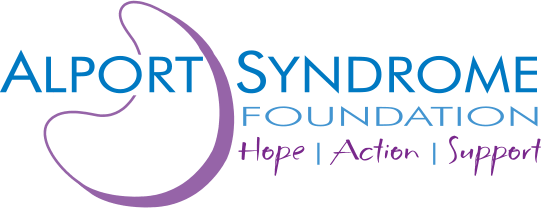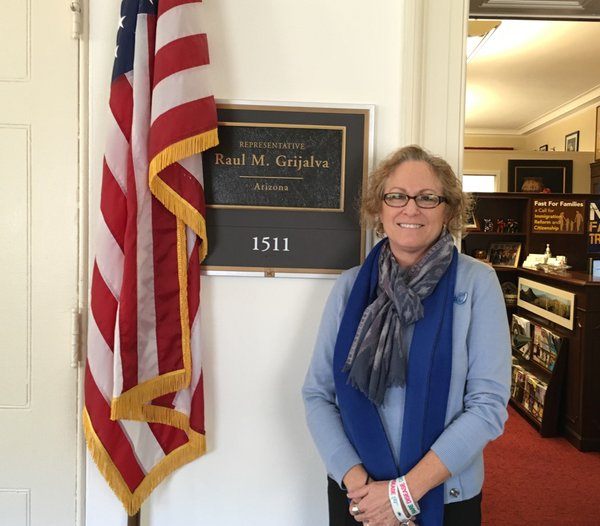As a rare genetic kidney disease, Alport syndrome sits astride two communities for research and advocacy: the Rare Disease Community and the Kidney Community.
I have had the privilege of joining each of these communities as a patient advocate. These advocacy events are:
- Inspiring – you get to meet so many ordinary people doing extraordinary things through passion and commitment;
- Educational – you learn what can be done collaboratively to effect change and how much power is in our stories; and
- Empowering – you are exposed to those in government and the private sector that are committed to making the patient a priority and partner with patient groups to bring new treatments to under-represented diseases.
Alport syndrome is definitely an under-represented disease. We are dwarfed in the kidney community by other diseases that affect so many. We are also not as high a priority in the rare disease community because we do have the life-saving treatments of dialysis and/or transplantation. However, while we are grateful for these treatments, less invasive options are still needed. Luckily, we do have the advantage of being a disease that has similarities to other diseases, such as fibrosis and scarring, and because Alport syndrome is rare it offers special incentives for drug companies to develop therapies.
ASF members have participated in the Kidney Patient Summit the past few years to kick off National Kidney Month in March with over 100 other advocates descending on Capitol Hill to talk to their Congressmen and Senators about issues affecting all kidney patients, such as increasing available kidney transplants and prolonging coverage for transplant medication to name a few.
ASF members also joined the American Society of Nephrology in September 2015 to have kidney doctors and patients advocating side by side. And I have just returned from Rare Disease Week where over 300 rare disease advocates participated in programs at the National Institutes of Health (NIH) where we listened to top directors at the FDA and NIH talk about how patient-centered research is a top priority, saw the commitment of our lawmakers to push through legislation that would help all rare disease patients get more treatments and last but not least, met people like you and me, battling unbelievable odds to make their voice heard to help themselves and their loved ones.
You do not have to go to Washington, DC, to advocate. All you have to do is tell your story and make your voice heard. Tell others what it is like to live with Alport syndrome and what we want to see for the future. We do not want another generation of our families to experience kidney failure and hearing loss. To effect change we must speak up – each in our own way.
So I challenge you for Alport Awareness Month to tell your network of family, friends, and colleagues about the disease and how it impacts your family. Make an appointment with your state or federal lawmaker to tell them your story and what would help your family and others with the disease. Contact your local newspaper to educate the public. Use your social media to spread the word; or hold a fundraiser to raise awareness.
I have seen the power of the collective voice in action so let’s make March the best ever Alport Awareness Month!
Sharon Lagas is the president and co-founder of the Alport syndrome Foundation.
This blog post was originally published March 2016.


